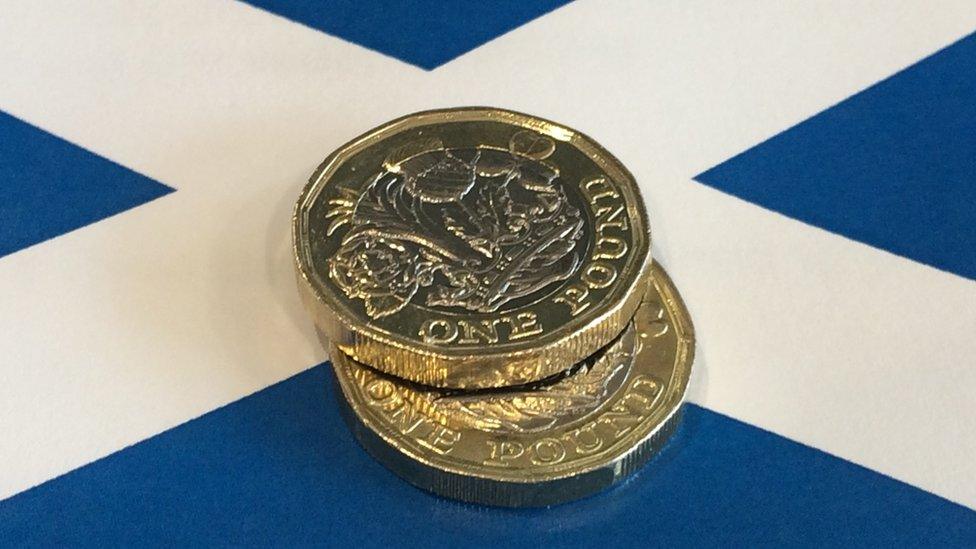Testing time for Scotland's currency
- Published
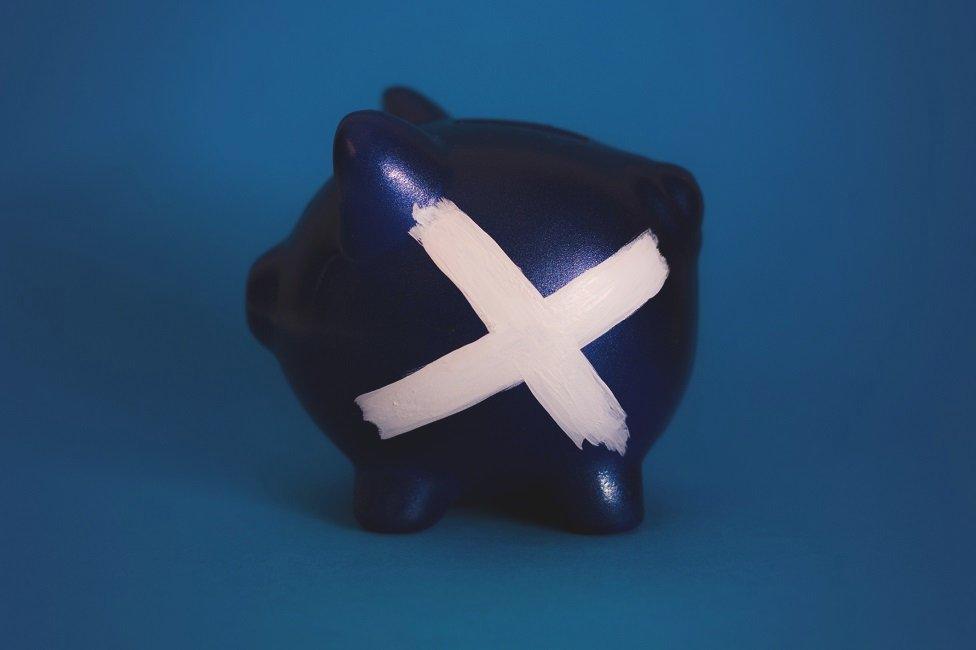
The SNP leadership wants to make the case for an independent Scotland to have its own currency.
The Sustainable Growth Commission set out six tests for that currency to be set up.
Those tests are meeting stiff opposition from the wider pro-independence movement.
With one bound, the economic case for independence is free. Or is it?
Instead of arguing for joint control of the pound sterling, as the SNP sought to do in 2014, the party of government is set to embrace the case for a separate Scottish currency.
It surely can't be difficult to persuade the party faithful of that, can it? Well, that depends on the conditions for making the transition.
How about the voters, if there's to be another independence referendum? That's not so easy.
In 2014, the calculation was that the euro was too toxic, having recently been close to collapse. The constraints imposed on Greece were fresh in the memory.
The pound, meanwhile, offered apparent soundness and stability. In the process of eliminating the negatives, Team Salmond and the White Paper authors went for the reassurance of the familiar.
They didn't want their campaign to be diverted into scare stories about people whose mortgage might be in sterling and their earnings in a new and weaker Scottish currency, or exiles' pension in the Scottish dollar but their living expenses set at London prices.
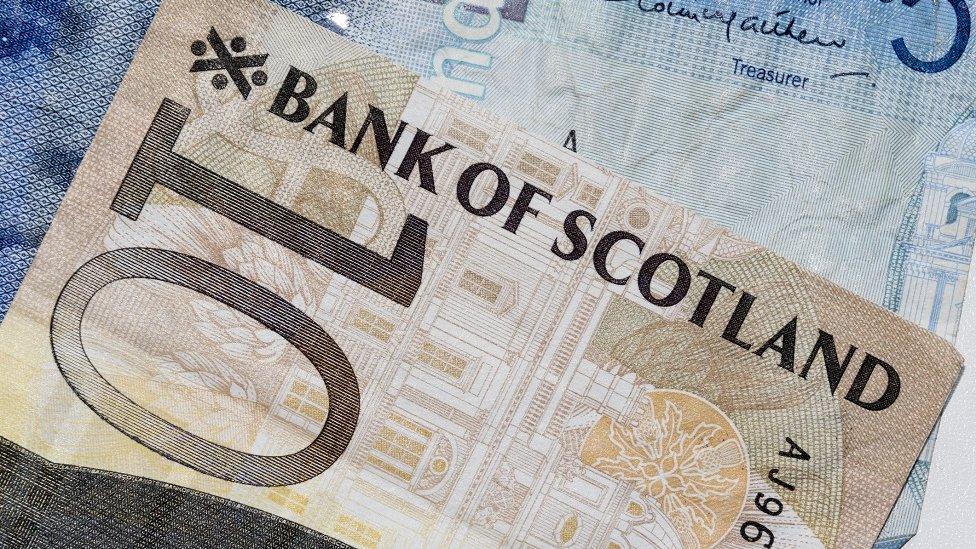
It was, instead, diverted into questions - some will say scare stories - about what happens if or when the Treasury refuses to share controls over the currency. Some on Team Salmond remain absolutely convinced the Treasury was bluffing.
They believe that one minister, anonymously quoted in The Guardian in early 2014 as saying that, 'yes, of course the Treasury would co-operate with Holyrood on control of sterling', was the genuine voice of the Treasury.
Well, that's not the story now. If there was a post-mortem of that campaign, it hasn't been very public. The closest the SNP has come has been to reviewing the economic case was to commission former MSP Andrew Wilson to lead a review of what the economic case should be now.
His report has been gathering dust, at least until last Friday. That's when the recommendation of arguing for an independent Scottish currency surfaced as the leadership's proposal for the party's up-coming gathering.
If you heard a sigh of relief, it was probably from those who hadn't gone back to read the report of the Wilson 'Sustainable Growth Commission'. It set tests that had to be met before the new currency could be introduced.
And at the weekend, there was more clarity on the proposal, that it would "be guided" by these tests, with the reassurance to voters that the "process and precise timescale should be subject to robust governance".
So here are the tests, in summary:
Does Holyrood have borrowing and debt at sustainable levels?
Stability for the central bank and the issuing of debt - that is, the confidence of the bond markets.
Would a separate currency meet the needs of Scottish residents and businesses for stability and continuity of their financial arrangements, and would it command wide support?
Sufficient foreign and financial reserves.
Would the new currency better reflect new trading and investment relationships?
Is there a significant gain from shifting monetary policy to a different economic cycle to the Bank of England's - perhaps with other trading partners?
There's a lot to chew on in that list. Starting up a new central bank looks like the easy bit.
Other elements of it require a judgement call on economic cycles, or what the interests of Scottish households and businesses might be. How do you know when the move commands "wide support"? By what measure?
And if there isn't sufficient gain for the pain of dislocation from sterling to a new currency - perhaps because Scotland's economy remains closely aligned with the rest of the UK - does this imply that the move might never be made?
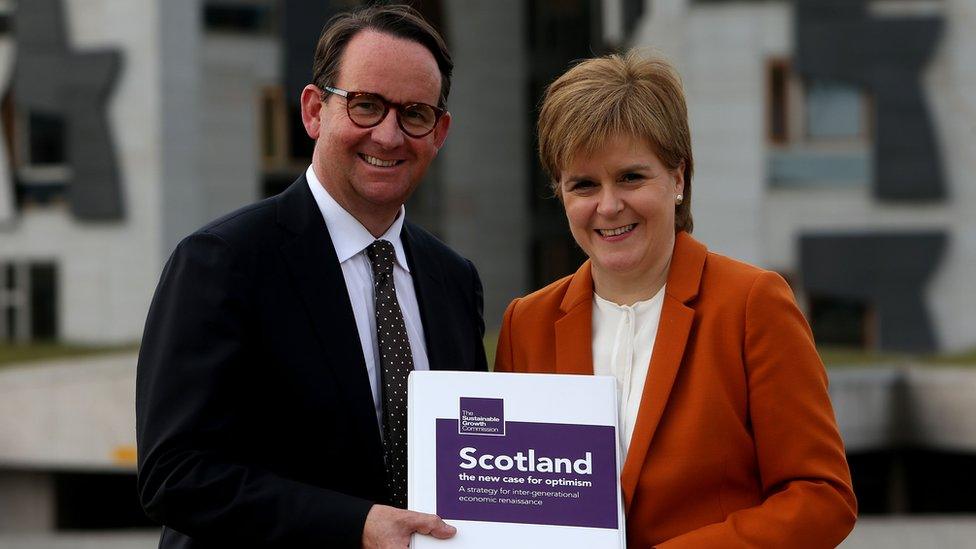
Mr Wilson formally handed over the report to First Minister Nicola Sturgeon last May
Put it another way: if Scotland is to be tied to the UK economy until such time as it has met the criteria for a shift to its own currency, is that UK link going to make it impossible to prepare for the transition?
Then there are difficult political choices, around spending - most notably, getting to a sustainable level of borrowing, with the right mix of taxation and spending.
Andrew Wilson's Commission pencilled in a nine-year programme to reach that point, by cutting spend as a share of economic output. That's not necessarily a cut, but if growth continues to be slow, it could become one. It's certainly not an easy path for a finance minister to follow.
Scottish Labour claimed that timetable would require a new decade of austerity. And that's where the debate quickly became focussed last May - in a war of words over the scale of squeeze required to get to sustainable borrowing, but without any agreed definition of 'austerity'.
Leaving Labour's attacks aside, the SNP leadership will be more concerned about the criticism from its left, and from non-party elements within the pro-independence movement.
Economist and former MP George Kerevan has voiced big concerns about the implications of the Growth Commission recommendations and "bogus" tests.
To that, add CommonSpace, for instance, a group that suspects the six tests are like those applied by Gordon Brown to UK membership of the euro, and Labour's support for Theresa May's Brexit deal - that is, intended "to prevent the thing you are testing from ever coming to fruition, without publicly rejecting it outright".
It's now reported in The Herald that Colin Fox of the Scottish Socialist Party has no intention of joining another umbrella body, external to campaign for independence, if that is to be prospectus. Scottish Greens are sending similar signals.
The backbencher and party faithful have been willing to keep such critical views largely away from public view. But it's hard to see how that will happen in the run-up to the SNP spring conference, at the end of April in Edinburgh.
It's a long time since the SNP had a big conference showdown over a shift in policy and strategy. Alex Salmond used to relish them, or so he made it seem.
Under her leadership, Nicola Sturgeon has so far avoided any such internal party clashes. Not any longer.
- Published1 March 2019
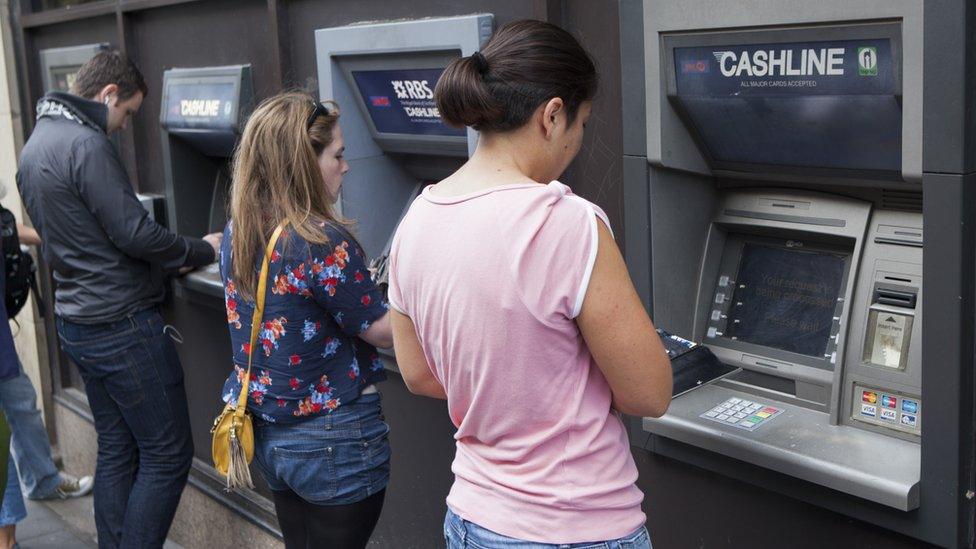
- Published25 May 2018
